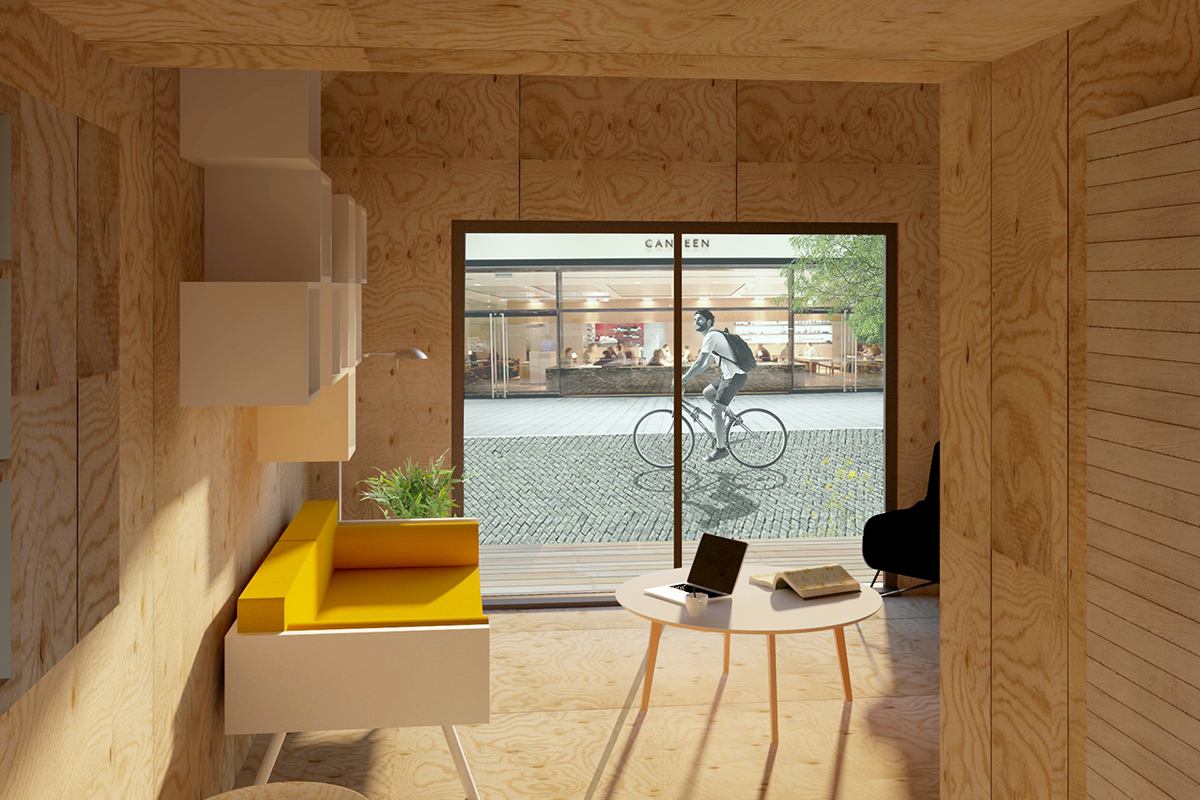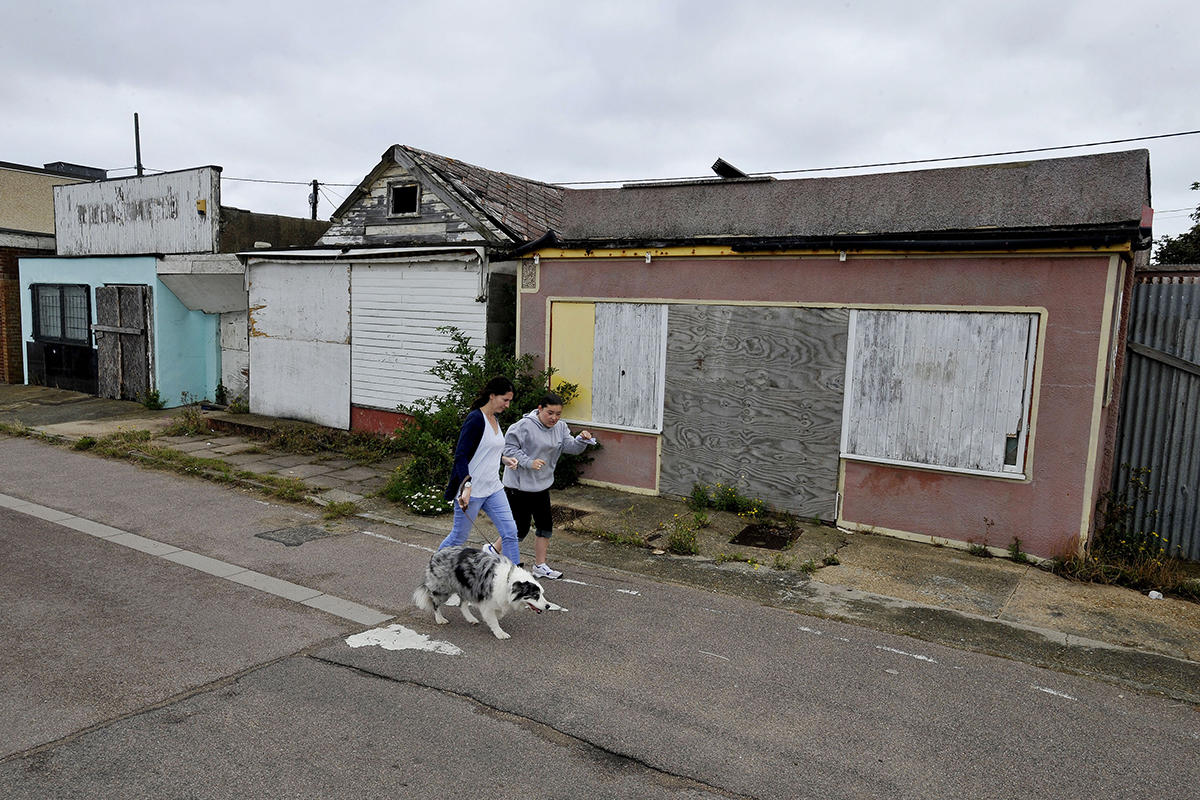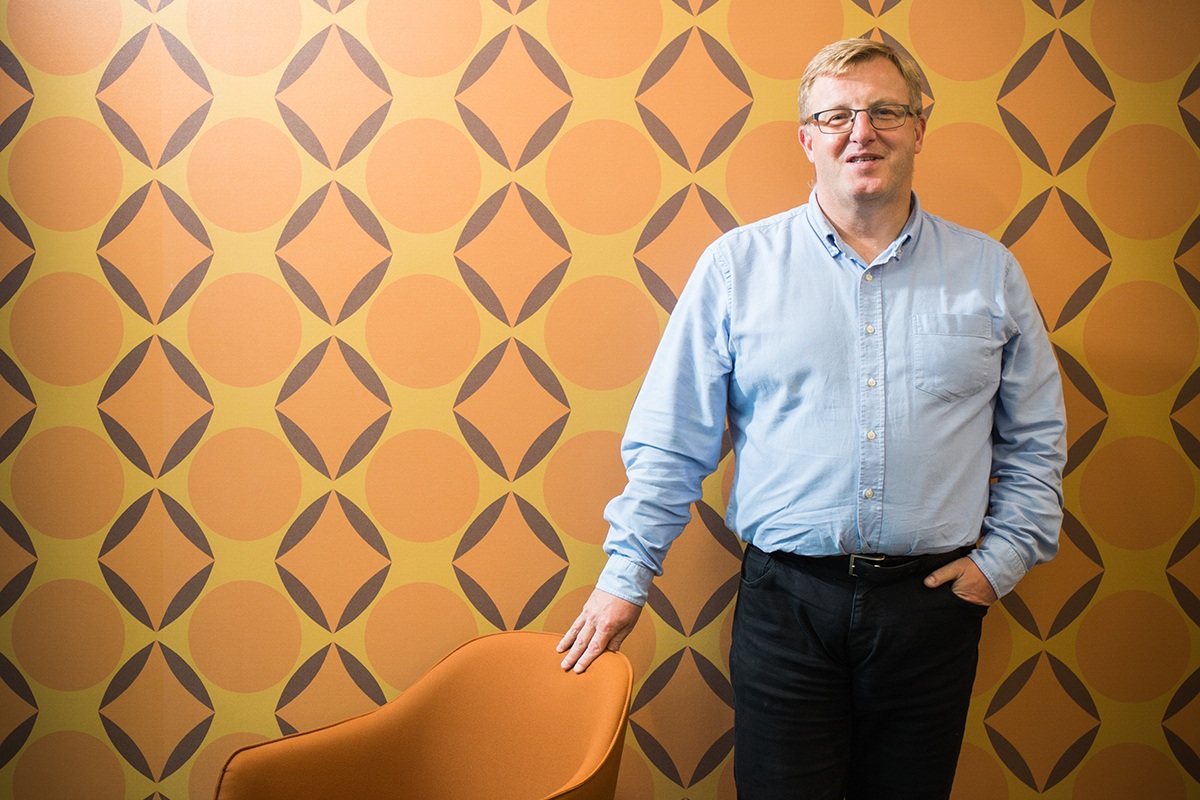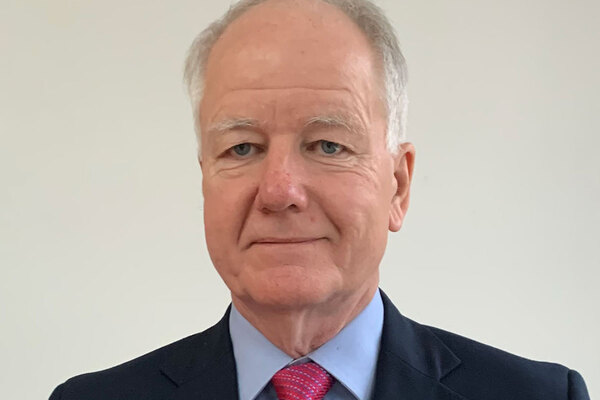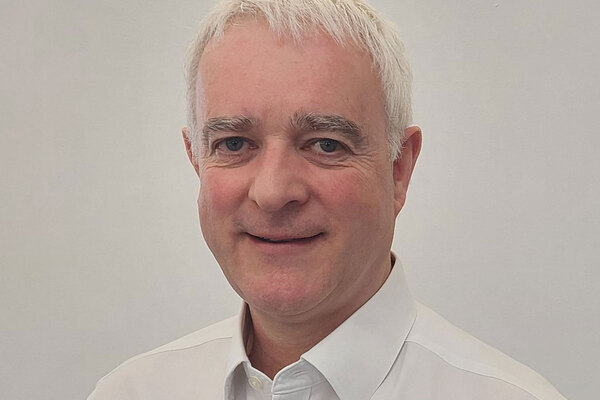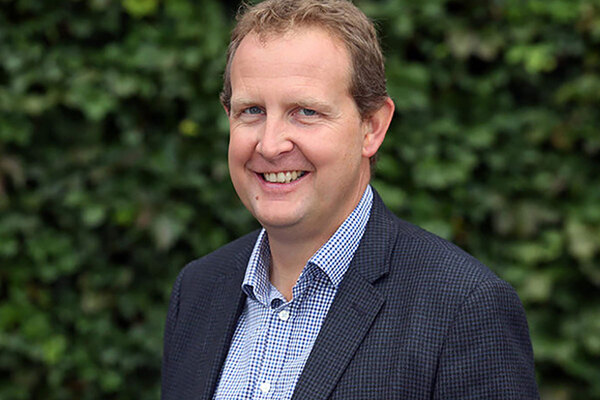You are viewing 1 of your 1 free articles
The innovator: interview with Brian Cronin
Your Housing Group stunned the sector by pulling off a £2.75bn modular housing deal with a Chinese building firm. Luke Barratt travelled north to find out how chief executive Brian Cronin made it happen. Photography by Vicky Matthers
“Things that even three or four years ago we might have found difficult to contemplate are becoming our new reality,” says Brian Cronin, appropriately on the very day the future arrives for the Your Housing Group (YHG) chief executive.
Auspiciously, Inside Housing has come to YHG’s Warrington HQ just as the 28,000-home landlord is welcoming delivery of a prototype modular home from its laboratory in Berkeley, Gloucestershire. It is the first fruit of YHG’s groundbreaking £2.75bn modular housing deal with a Chinese construction firm, a move that stunned the sector when it emerged almost a year ago. That was a red letter day, but Mr Cronin is already looking to the next stage.
“We’ve got a scheme in south Manchester that we’re trying to get under way over the next few weeks, to build out a complete scheme of 50-odd units,” he explains. “That’s our focus. If the pilot scheme is successful, we want to work with them to deliver more.”
Effervescent and enthusiastic, Mr Cronin takes naturally to innovation, despite 16 years as a housing chief executive. He was instrumental in the high-profile 2012 merger between Harvest Housing Group and Arena Housing Group (where he was chief executive) that formed YHG. Five years on, he sees his role as one of spearheading change and innovation during uncertain times in the sector.
He muses: “As you get older, I suppose you would think your attitude would get more conservative, [but for me] it has actually changed in the opposite way. I think as a sector we need to be much more vibrant, much more innovative and we need to move much more quickly.
“You need to step forward and show some leadership to the organisation about a direction of travel, which most people can’t foretell in uncertain times. You really have to step up into that vision and leadership role and look at something that is new and radical.”
The past few years have constituted a period of turmoil for the sector. A surprise rent cut by then-chancellor George Osborne in 2015, combined with fluctuating grant rates, have sent housing associations scrambling for alternative sources of funding. YHG is by no means the only housing association forced to think differently, but Mr Cronin is notable for his bullishness about the new environment.
Even now, he is excited about a fresh innovation at his association. YHG is introducing a digital platform for new tenants from 1 November, to be rolled out in full across the organisation in July next year. Prospective tenants will rent property digitally, while existing tenants will be able to book repairs and other appointments at any time of the day using their smartphones.
Mr Cronin says this encapsulates his attitude towards change. Ultimately it’s all about delivering specific goals more effectively, he suggests.
Rise in builds
Change has defined YHG in particular for the past couple of years. The organisation had 1,534 full-time employees in 2015. Today, that number stands at 800, a reduction of almost 50%. This, Mr Cronin says, has enabled savings of £25m a year and has allowed YHG to increase its investment into its stock by £300m during the next 10 to 15 years. Whereas previously it built about 400 to 500 homes a year, it aims to produce 1,200 to 1,500 homes a year from 2018/19.
“You need to step forward and show some leadership.”
The association has also recently undergone a major restructure. Cumbria-based Derwent & Solway left the group this July, following the departure of Leasowe Community Homes earlier in the year. These, Mr Cronin insists, were amicable separations resulting from those associations disagreeing with the centralised approach that the main group was adopting. As part of that approach, YHG has drastically simplified its structures and refinanced its debt.
Mr Cronin himself has reaped the rewards for leading this transformation. As Inside Housing’s annual survey of chief executives’ salaries revealed in August, he enjoyed a higher percentage increase in his salary (18.2%) than any other leader in the sector. This, he explains, was the result of a hefty bonus of £33,728, the third-highest in the sector.
The chief is not sheepish about his bonus, however: “What I was rewarded with – and all the other members of the senior management team, too – was for delivering that change programme. He said the challenge was: “Could we turn 14, 15 associations into one? Could we refinance the balance sheet and create £250m of investment? Could we reduce our cost base by £25m and could we set the organisation up for the new future?”
The most striking way Mr Cronin has “set the organisation up for the new future” so far has been the deal with China National Building Material (CNBM), a state-owned construction company. In December last year, CNBM signed a £2.75bn deal with YHG to open six housing factories in the UK with an aim of eventually producing 25,000 homes a year.
Construction test bed
The Chinese government has asked the firm to use the UK as a test case for the modular construction of housing, which it hopes will eventually be used to build between one million and 1.5 million homes a year in China.
Looking back to the start of the deal, Mr Cronin explains that as YHG realised the old model for funding housing associations was broken, his team started to consider more revolutionary means of staying afloat.
“We went back and rethought everything,” he remembers. “We were moving out of a world where basically we were getting grant levels at 50%, 60%; any bank in the world would lend us money at 40%, 50% equity into a scheme. Because of our past record at collecting rents, it was a very anodyne marketplace. When that completely changed and grant levels were going down to 10% and 15%, the whole funding structure changed.
“We were moving out of a world where basically we were getting grant levels at 50%.”
“Because we were trying to be innovative, we started to form a relationship with DTI [the Department of Trade and Industry]. What we soon discovered was that we were the only housing association talking to them.”
After meetings with foreign investors hailing from everywhere from America to Saudi Arabia, YHG was asked by the government to attend a roadshow in Manchester and present to CNBM. The venue was full of local authorities, but YHG was the only housing association. “We were the only housing association the DTI knew!”
Common perspective
Bringing together two organisations from different sides of the globe and operating within very different economic systems would seem to present a significant challenge, but Mr Cronin says that they had more in common than he’d imagined.
“They like the fact that actually we have a similar corporate structure to them,” he explains. “They’re owned by the state [and] they sort of think that we are but we’re not quite. The more you try and explain that we’re not, the more convinced they become that we are!”
That relationship will be crucial if the eye-catching factory deal is to turn into the game-changing event for the sector. But the project itself is far larger than YHG. Live Verde, the company set up to run the programme, is actively searching for new partners as its outspoken CEO Stephen Haigh – previously executive director of specialist housing at YHG – ruffles a few feathers in his mission to bring offsite construction into the mainstream in the UK. At a session at the Housing 2017 conference and exhibition in Manchester this year, Mr Haigh told delegates that the sector had to “get our heads out of our arses” when it came to offsite.
Brian Cronin may use slightly gentler language with Inside Housing, but he is equally passionate about the need for the sector he loves so much to embrace innovation.
“This is about change and it’s about how quickly you can change. We need to be able to be agile and to respond to change really quickly, because there is a massive housing need and what we can’t do is look back and constantly look at old solutions. If they worked, they would have worked by now.”
Whatever accusations could be levelled at Mr Cronin, relying too heavily on old solutions is not one of them.
Brian Cronin is speaking at the seminar, ‘Using stock rationalisation to enable development of new homes’, at 11.30am on 23 November at Homes 2017.
He is also speaking at the Social Housing Annual Conference on 9 November on ‘fixing the broken housing market’.

